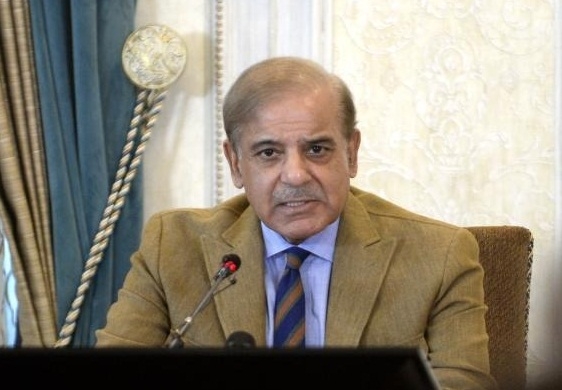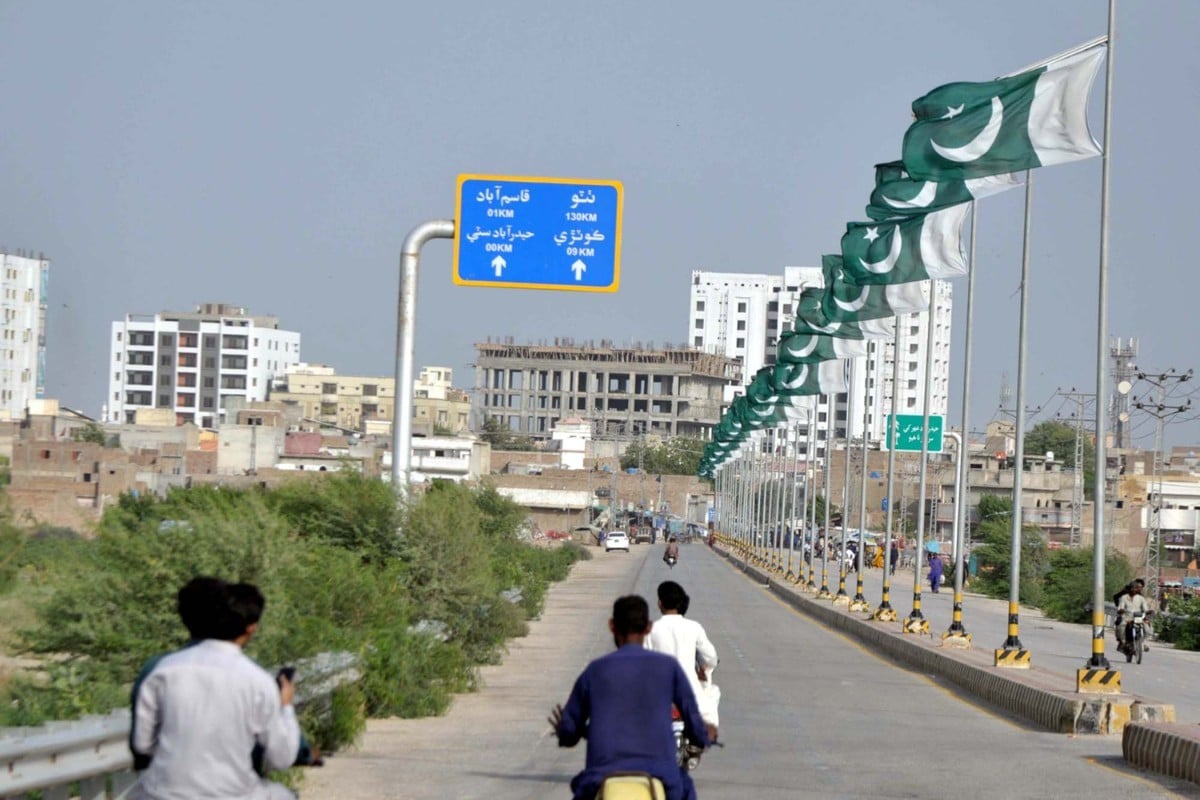People in Occupied Kashmir worried China will annexe Gilgit – Baltistan. They want to join India … A special report by Dr Sakariya Kareem
seems no coincidence that the protests in Pak-occupied Kashmir (PoK) against inflated power bills that people of PoK have to meet has come at a time when Deputy Prime Minister and Foreign Minister of Pakistan Mohammad Ishaq Dar was visiting Beijing to discuss plans for the realignment of the strategic Karakoram Highway, acceleration of the China Pakistan Economic Corridor (CPEC) projects, upgrade of the Karachi-Peshawar railway project, and improvement of the Gwadar Port managed by a Chinese firm.
Going by their past experiences, people of PoK know that the intensification of CPEC projects will mean a bigger exploitation of resources of PoK by China and even more inflated power bills for the people of PoK. There have been periodic protests in PoK against inflated power bills to consumers. There was one such protest in February this year too, and one in September last.
People of PoK are against CPEC projects. They have protested against the forcible acquisition of their land without compensation for the construction of projects such as roads and hydro-electric power stations; projects that do not benefit the people of the region. The Pakistan government and the Pakistan army have been acquiring the ancestral land of the people of Gilgit – Baltistan. Activists in PoK and local people are also concerned that the CPEC projects will create a major ecological imbalance.

About a year ago, the European Union and India had jointly warned that the construction of the CPEC passing through PoK was a glaring instance of high-handed behaviour of Beijing. China has been executing the CPEC projects in gross violation of Indian sovereignty rights over PoK. According to analysts, people in PoK are worried that once China gets a foothold in Pak-occupied Gilgit-Baltistan (PoGB) they will never vacate the area. China will like to control the strategically located PoGB. China has been using Belt and Road Initiative projects in different countries to gain control of assets located in strategic areas once the recipient countries of BRI loans fail to repay the debt. China also wants to take control of Gilgit-Baltistan to eliminate the Uighur people living there. The Pakistani Deputy Prime Minister, in his Beijing visit, has vetted the Chinese policy of violation of human rights of the Uighur people in Xinjiang, bordering Gilgit – Baltistan.
Islamabad is not averse to the idea of allowing China to take control of Pak-occupied Gilgit Baltistan as PoGB is a Shia majority area which wants to secede from Pakistan. But the people of PoGB want to merge with India. Chairman of Balawaristan National Front Abdul Hamid Khan has said residents of PoGB want to secede from Pakistan and merge with India. “The Pakistani administration has made efforts to alter the demographic profile of PoGB, reducing the indigenous people to a minority,” he has stated. “In the Gilgit and Skardu areas, large tracts of land have been allotted to non-locals.”
The roads that are being set up under CPEC are used to wheel away resources of PoK to the prosperous provinces of Pakistan like Punjab and Sindh. The power generated in PoK goes to meet the demand in these provinces and the Chinese firms engaged in these projects take home a large share of the profit. Power plants are being funded through foreign direct investment by Chinese firms and commercial loans at the rate of six to seven percent from Chinese banks. A probe conducted by the previous Imran Khan government into the anomalies of CPEC had concluded that six China-funded CPEC power projects have yielded huge profits for Chinese firms, setting up projects through over-invoicing and tariff charges compared to the market rates.
Pakistan suffers from a major power crisis and draws its electricity mostly from Gilgit – Baltistan, while the people of Baltistan are deprived of the royalties from these projects. People in PoK do not even get employment in these projects. Chinese engineers and workers are engaged in them. The presence of Chinese workers in the region has left the people of PoK without jobs.
Director Gilgit Baltistan National Congress Senge H. Sering has been quoted: “When Pakistan army was constructing Karakoram Highway along with China, no compensation was given to the affected people. No loss assessment was made. Now the land acquisition for the CPEC project is being done forcibly. The ancestral land of the people cannot be acquired without paying them compensation and earning their consent.”
Now that a part of the Karakoram Highway has got submerged in Attabad Lake at Hunza, there is a plan for realignment of the road which the Deputy Prime Minister of Pakistan has finalized in his Beijing visit. Under Karakoram Highway Phase 2 project, the 470-km long section of the highway between Hasan Abdal and Rajkot is sought to be upgraded in the next many years. People of PoGB are afraid that there will be a need for more land acquisition which will be done forcibly, and without compensation.
Two of the highly controversial hydro power projects in PoK are Azad Pattan and Kohala Dam. Azad Pattan, with a capacity of 700 MW, is being sponsored by China Gezhouba Group which owns 80 percent stake. The Kohala hydro power project, with a capacity of over 1,100 MW, is being built by China International Water and Electric Corp, a subsidiary of China Three Gorges Corporation; jointly with Pakistan Water and Power Development Authority. Residents of Muzaffarabad, the capital of PoK, had protested against the setting up of both the Azad Pattan and the Kohala Dam projects.
In September last, there was the call in PoK for a total boycott of exorbitant power bills that were putting an unusual strain on the budget of families. Significantly, the electricity bills have gone up in PoK even as the National Electric Power Regulatory Authority (NEPRA) has allowed power producers in Pakistan to charge consumers through tariff one percent of the cost of 19 power projects worth over $15 billion under CPEC for 20 to 30 years on account of security cost, as reported by Dawn, the Pakistani newspaper.
Article 10 of the CPEC Agreement provides that “the Pakistani party shall take the necessary measures to ensure the safety of Chinese personnel and projects.” A special division of the armed forces has been raised to ensure security of CPEC projects. “Since this cost is specific to the CPEC projects, it is more appropriate to charge this cost to the respective project,” NEPRA has ruled.
During his visit to Beijing, the Pakistani Deputy Prime Minister was asked by China to take more effective security measures “and make all-out efforts to ensure the safety of Chinese personnel, projects and institutions in Pakistan,” said the Joint Communique by the two sides issued after the visit. The Global Times, the mouthpiece of the Chinese Communist Party, too stressed on the “need for more effective security measures to ensure the safety of Chinese personnel and companies in Pakistan.”
In the past few years, there have been a number of attacks on Chinese engineers and workers engaged in CPEC projects in Pakistan; leading to deaths and injuries. The attacks have been carried out by militant groups unhappy with Chinese presence in Pakistan. In July 2021, nine Chinese engineers were killed in an explosion in a bus at Dasu hydropower plant. In March 2024, five Chinese engineers engaged again killed at the Dasu plant in the Khyber Pakhtunkhwa province Pakistan in a suicide bomb attack. The Baloch Liberation Army has given an ultimatum that its attacks on Chinese citizens in Pakistan will escalate in future unless China withdraws its personnel and dismantles economic projects in Balochistan.

